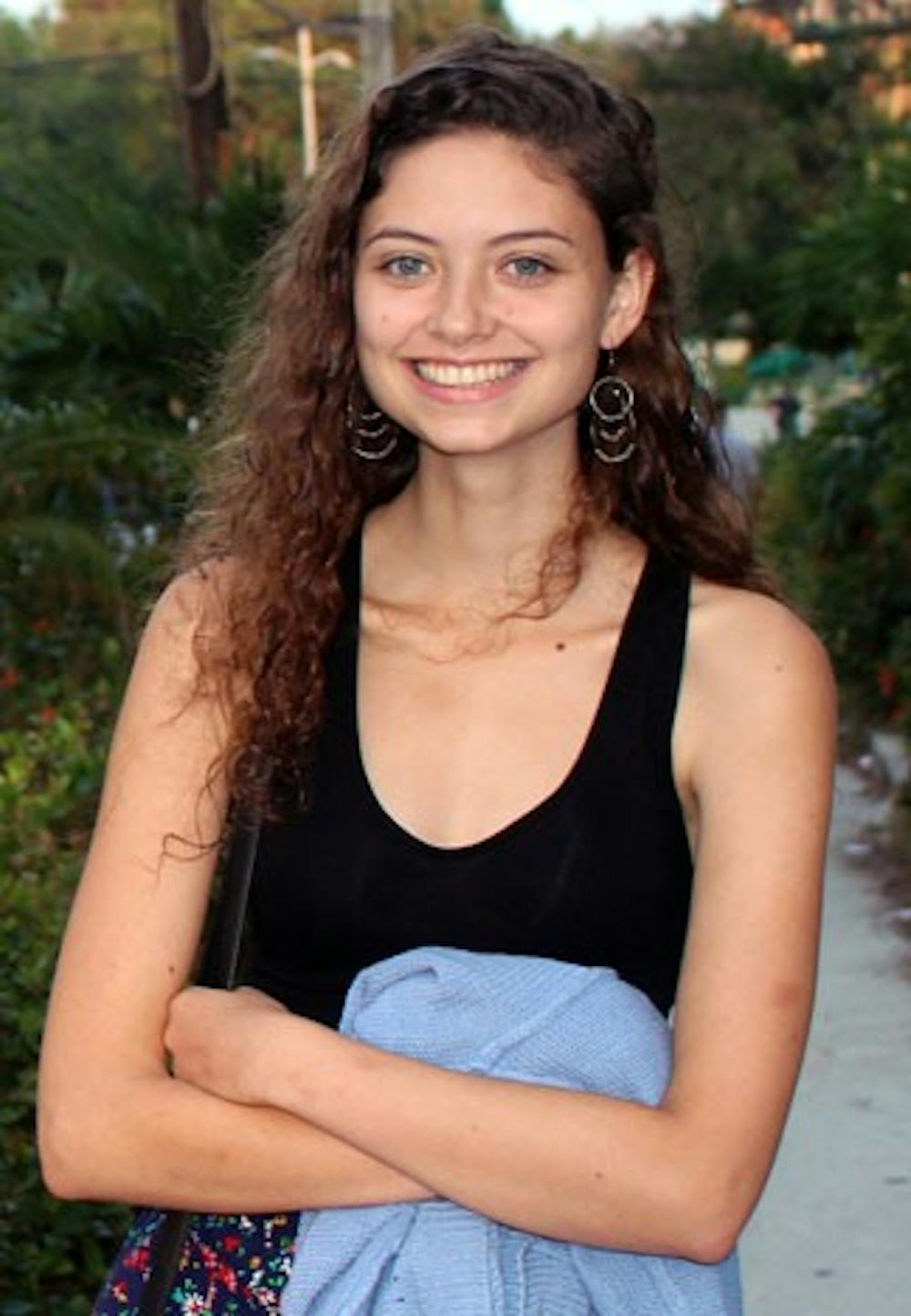Margaret Wright ’17 has been named the recipient of this year’s Martin A. Dale ’53 Fellowship, which enables an outstanding senior to pursue an independent project that widens his or her experience of the world and significantly enhances his or her intellectual development. Wright will spend the next year traveling across the country, primarily on foot, to interview the people she meets along the way and create “listening poems” from the words and phrases they use.
“The ultimate goal of the project is to create a collection of these poems, whether a physical book or a series of audio files,” she said.
Wright plans to follow the American Discovery Trail, the country’s only non-motorized coast-to-coast trail, which runs from Delaware to northern California. She will ask interviewees a broad range of questions, and will continually change her approach based on their input.
Wright said that her experiences at the University, both inside and outside of the classroom, have shaped her interest in becoming a better listener. In particular, her study of creative writing and participation in prison-related advocacy work have informed her idea for the listening poems project.
“I had barely studied poetry before coming here,” Wright said. “The more I started learning about poetry — both through the Creative Writing Program and also through Ellipses, the slam poetry group I joined in my sophomore year — the more I began to see poetry as an art form that is uniquely effective at challenging and expanding our perceptions of the world and creating opportunities to access other people's interiors.”
As an English concentrator pursuing certificates in creative writing and Latin American studies, Wright completed a poetry thesis this year. Advised by professors Tracy Smith and Meghan O’Rourke, her thesis partly inspired her decision to embark on a creative project after graduation. In particular, Wright said, listening to Smith and O’Rourke talk about poetry’s impact on its readers made her curious about how poems can be used to facilitate empathy and create opportunities for listening.
“I sometimes got worried, when writing my thesis, that a lot of the poems I was writing were probably most accessible or interesting to people who had had life experiences similar to mine. I started to wonder about how I could help make poetry that would include a wider array of voices, and maybe work more directly towards social change — which is something that I would ideally like to be doing with all of my writing, even if in just a tiny way,” she said.
This year, Wright and other members of Ellipses began co-teaching a poetry class for incarcerated people in a state prison.

“We sometimes discuss poems that I’ve known and loved for a long time, but talking about them with our students — hearing what moves or angers or surprises them in the poems — always changes the way I think about these poems for the better. I’ll often leave class and realize that I didn’t really understand a poem until we talked about it together. It has cemented for me how important it is that poetry not just circulate in a really insular community — which I think some poetry sometimes does — that poems become so much better when lots of different voices get involved,” she said.
As a member of Students for Prison Education and Reform, Wright has worked with other students and incarcerated or formerly incarcerated people who have taught her the value of intentional listening when engaging in advocacy work for marginalized communities.
“[SPEAR] made me realize that it’s alarmingly easy to start doing advocacy work without really listening to the people you’re trying to help or advocate for,” Wright said. “My involvement with SPEAR has made me want to take a year to think about the way that I listen to other people before I continue doing any sort of advocacy work.”
Wright said that an independent project she completed the summer after her sophomore year, in which she interviewed and wrote profiles of previously incarcerated artists, most directly informed her idea to create listening poems.

“The artists were just incredible, but afterwards when I started writing about them I became kind of uncomfortable with how central my own voice was in the profiles. I loved listening to their interviews — I would do it over and over again — and each time I would wish that there were a way for me to share the voices in the interviews more directly with a wider audience. It made me curious about creating a piece of writing where the voices of the people I was interviewing would be more prominent than my own voice,” Wright explained.
After completing the project, Wright hopes to pursue a line of work that combines her interests in poetry and prison reform.
“One of the reasons that I wanted to do this project is that I would love to ultimately do something related to either creative writing or social justice work — or, in an ideal world, some combination of the two,” Wright said. “I’m not convinced that I’m a good enough listener to do either right now, but I'm hoping to practice and improve over the next year.”








